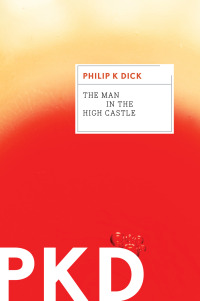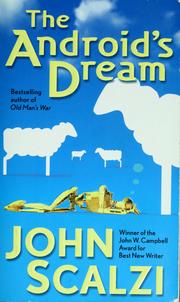The Man in the High Castle by Philip K. Dick
 Tuesday, January 24, 2012 at 12:35AM
Tuesday, January 24, 2012 at 12:35AM 
First published in 1962; published by Mariner Books on January 24, 2012
The Man in the High Castle is a skillful blend of abstract and concrete, of political theory and the impact of fascism and colonialism on a formerly free people. The novel is many things at once: a story of personal growth; a meditation on the nature and purposes of art; a deconstruction of political doctrine; an exploration of moral philosophy. I don't think I fully appreciated it when I first read it, about ten years after it was published. It still isn't my favorite Philip K. Dick novel (Ubik holds that distinction) but, after rereading it, I have a better grasp of what Dick was trying to accomplish. It is probably the best alternate history I've encountered.
As is true of the best Philip K. Dick novels, The Man in the High Castle is intricately plotted. The first half of the story establishes characters and sets up the intrigue. It isn't immediately clear where the story is headed. The second half weaves together the various storylines, all taking place in a world where Germany and Japan prevailed in World War II. Not every story is nicely resolved, but that's a reflection of life.
The cast of characters includes an Italian fascist, a Nazi, a Japanese bureaucrat, a divorced Jewish couple, and American forgers and dealers in Americana, both antiquities and kitsch. Dick made the inspired decision to write a book within a book: although it is banned in some places, everyone is reading a novel that imagines the US and Britain had defeated Germany and Japan. The device allows characters to compare life in Dick's alternate history to life as it more-or-less exists in post-war America.
To some extent, The Man in the High Castle is more interesting for the questions the characters ask than for the events that shape their lives. Would anyone but Philip K. Dick imagine a German, victorious after World War II, thinking: "We do not have the ideal world, such as we would like, where morality is easy because cognition is easy. Where one can do right with no effort because he can detect the obvious." If there is any context in which doing what is "right" is "obvious," it is Nazi Germany. Yet even in that context a soldier who wants to challenge the leadership of the Reich finds himself wondering whether he is following the right path. It is fashionable to condemn "moral relativism" in modern America, but Dick masterfully portrays the difficulty of viewing life through the lens of absolutism. That is one of many respects in which Dick encourages the reader not just to read and enjoy the story, but to think. This is a novel that benefited from a second reading; I think it would easily bear a third.
RECOMMENDED



